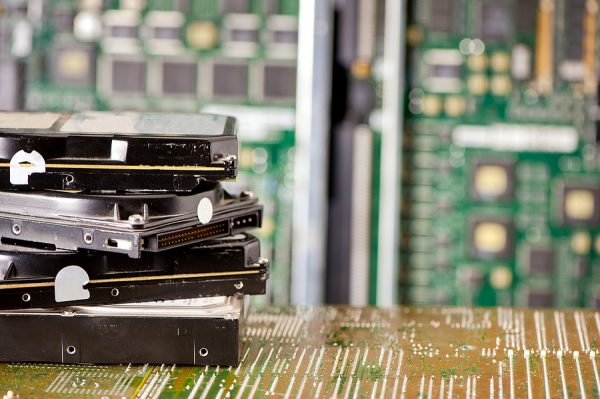
What do you really know about e-waste? Each year, people upgrade their phones, computers, printers, tablets, and other electronic devices for a newer, faster technology. The old devices should be recycled, though not everyone does that.
There was 44.7 million metric tons of e-waste in 2016. It’s estimated that only 20% of this is properly collected and recycled, with a majority of the remainder ending up in landfills or improperly disposed of.
Why Aren’t People Recycling?
You’d think that people would realize the importance of electronics recycling. Some of the issues lie in the fact that many states do not have recycling laws in place. In the U.S., only half of the states have laws in place that mandate electronics recycling.
Some of the states that lack electronics recycling laws have large populations. Arizona, Colorado, Florida, Massachusetts, and Nevada are just a few. Here’s a map of states with e-waste legislation.
What Happens When Electronics End Up in the Landfill?
Most landfills have a base of clay that’s covered in sheets of plastic that are around half an inch thick. On top of the plastic lining are drain pipes that lead out to pools. Household trash is trucked in and placed on top of these pipes and sheets. Layers of soil are added and the cycle continues until the landfill reaches 150 feet or higher. When a landfill reaches capacity, more clay is added along with more plastic. It’s covered in dirt and the process begins again in a new area.
Some things can be burned or composted. Some landfills are starting to separate these items. Food and paper waste may be composted. Some paper items are incinerated. Stuff that remains in these clay and plastic landfill areas remain underground where methane gas has to be ventilated to prevent fires and explosions.
Electronics that sit in landfills release heavy metals like mercury, arsenic, and lead, a heavy metal that is known to damage the central nervous system, into the water pools. The water in those pools ends up at a water treatment plant where new steps are taken to filter out the toxins before the water can be safely released to water sources or sent back to public water systems. Incinerating electronics also releases heavy metals and other toxins into the air.
Some electronics are sent to foreign countries for processing. It’s believed that 80% of e-waste is shipped to Asia. Not every country has the equipment or certifications to guarantee the workers are working safely as they melt down the plastics and metals. If you use an electronics recycler in the U.S. that holds certifications like e-Stewards or R2, you’re taking additional steps to protect workers and the environment.
What Happens When You Recycle Electronics?
When electronics are recycled, several things can happen. It comes down to what is requested. If a company asks for data destruction, steps are taken to erase all data to eliminate the risk of theft of photos, documents, and personal information. IT and Electronics Asset Disposition (ITAD) helps take care of electronics an organization or corporation wants to retire or set up for re-use.
If an item is being recycled but could be useful to someone else, it can be cleaned of data, tested, refurbished, and sold as a refurbished or used item to another consumer. Finally, there is electronics recycling. In this case, items are shredded into small parts. Those parts are separated into plastics, metals, and glass where they can be melted down and used in the manufacturing of other products.
As smelting (the process of melting down) can release toxins into the air, it’s very important to choose an e-waste recycler that takes every precaution to keep the toxins out of the atmosphere. Choosing a certified electronics recycler ensures you’re taking steps to protect the earth.
What Are Your E-Waste Practices?
If you’re not recycling your electronics, it’s a good time to get started. Have ERI Direct help you with your electronics recycling. Our eight certified locations that are able to recycle over one billion pounds of electronics following state laws and guidelines. We don’t ship e-waste to other countries.
We work hard to keep the environment clean of toxins and to keep electronics out of landfills. Whether you have a big project or want to learn more, call us at 1-800-ERI-DIRECT.